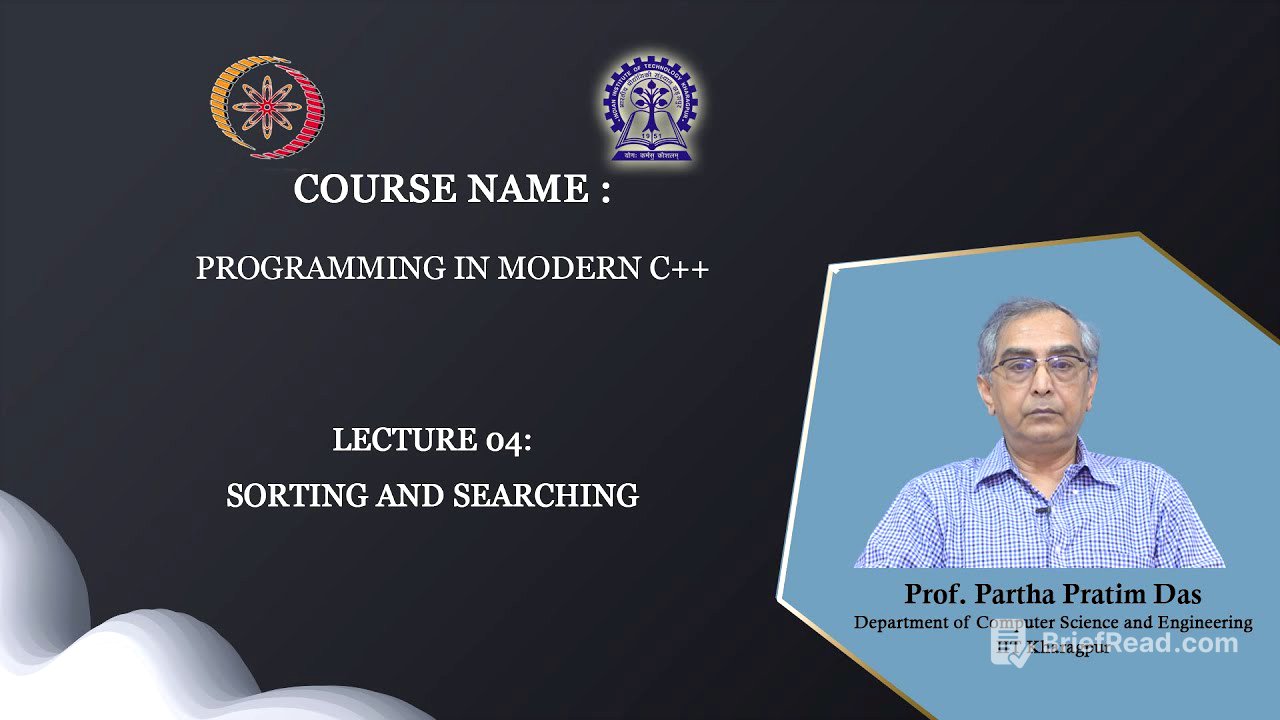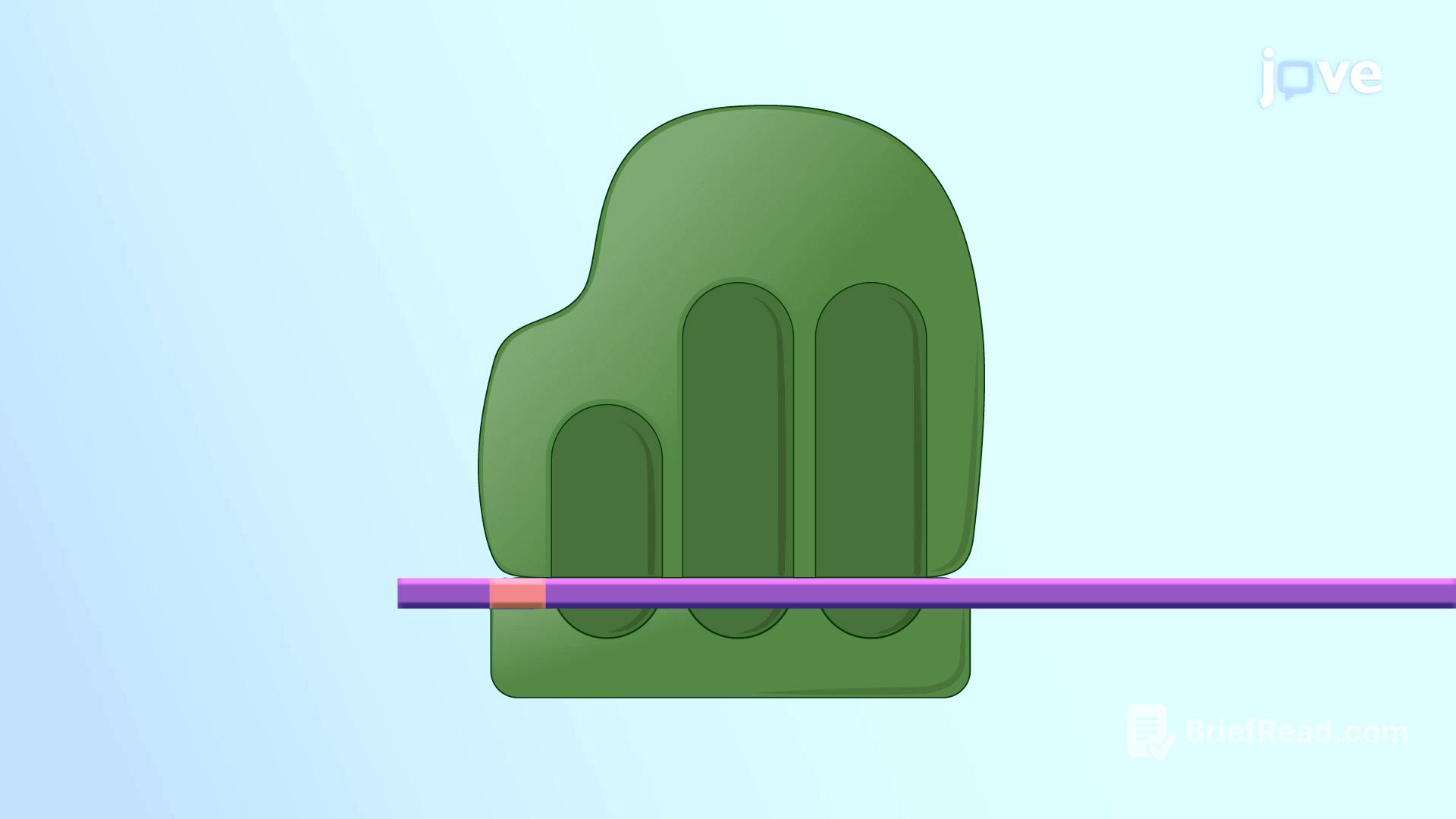TLDR;
This module discusses sorting and searching algorithms in C and C++. It covers Bubble Sort, the quicksort function (qsort) in the C standard library, and the sort function in the C++ standard library. The module explains how to use these functions, including the use of comparison functions and function pointers. It also touches on the binary search function in both C and C++, as well as other useful functions in the C++ algorithm library like replace and rotate. The key takeaway is that C++ offers more convenient and type-safe ways to perform sorting and searching compared to C.
- Bubble Sort is a basic sorting algorithm.
- C's qsort requires specifying array size, element size, and a comparison function.
- C++'s sort simplifies sorting by using templates to infer element size and type.
- Binary search functions are available in both C and C++.
- C++ algorithm library offers additional functions like replace and rotate.
Introduction to Sorting and Searching [0:26]
The lecture introduces the topic of sorting and searching algorithms in C and C++. It references the previous module's discussion on arrays, vectors, and string operations in C++. The current focus is on common algorithms that programmers learn early on, specifically sorting and searching.
Bubble Sort in C and C++ [1:57]
The lecture starts with Bubble Sort, a widely known but relatively inefficient sorting algorithm. The C and C++ implementations of Bubble Sort are nearly identical, differing mainly in the I/O header and print statements. The discussion transitions to using standard library functions for sorting.
Quicksort (qsort) in C [3:19]
The lecture introduces the quicksort function (qsort) from the C standard library (stdlib.h). It explains how to invoke qsort, detailing the parameters required: the array to sort, the number of elements, the size of each element in bytes, and a comparison function. The comparison function is necessary because qsort is a generic function that needs to know how to compare elements of any data type. The lecture explains the use of void * pointers in the comparison function to handle different data types, requiring the user to cast the pointers to the appropriate type before comparison. The comparison function should return an integer: negative if the first element is less than the second, zero if they are equal, and positive if the first element is greater.
Sort Function in C++ [15:46]
The lecture introduces the sort function from the C++ standard library, found in the <algorithm> header. Unlike C's qsort, the C++ sort function only requires the start and end pointers of the range to be sorted and an optional comparison function. It automatically determines the size of the elements being sorted, due to C++'s template capabilities. The comparison function is still needed for custom sorting orders or user-defined types. The parameters of the comparison function can directly use the element type, avoiding the need for void * pointers and casting. The example demonstrates sorting in both descending and ascending order, with ascending order being the default, which simplifies the call to sort even further.
Binary Search in C [21:37]
The lecture discusses the binary search function (bsearch) in the C standard library. Similar to qsort, bsearch requires the array, the number of elements, the size of each element, a comparison function, and the value to search for. The value to search for is passed as a void * pointer. The comparison function for bsearch needs to return -1, 0, or 1, depending on whether the first element is less than, equal to, or greater than the second element, respectively.
Binary Search in C++ [26:26]
The lecture explains the binary search function available in the C++ <algorithm> library. It requires the range to search within (start and end iterators) and the value to search for. Unlike its C counterpart, the C++ version does not require specifying the size of each element, as it can infer this from the data type. A comparison function is only needed for user-defined types.
Additional Algorithm Functions in C++ [27:46]
The lecture highlights additional functions available in the C++ <algorithm> library, such as replace and rotate. The replace function replaces elements within a specified range with a new value. The rotate function rotates elements within a range, shifting them to different positions. These functions offer convenient ways to manipulate arrays and other data structures.
Conclusion [29:57]
The module concludes by summarizing the advantages of using the C++ standard library for sorting and searching compared to the C standard library. The C++ versions offer more convenience and type safety. Additionally, the C++ <algorithm> library provides a variety of other useful functions for common algorithmic tasks.









